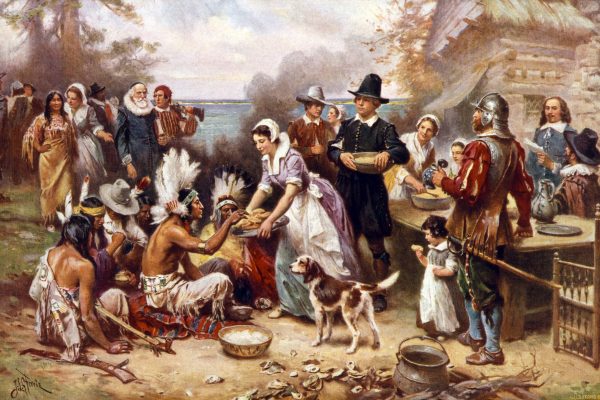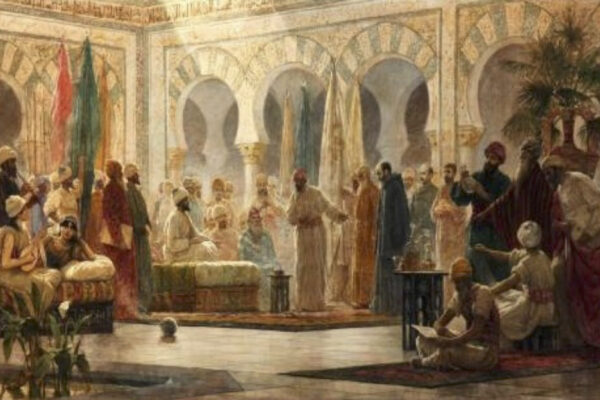It is argued that by the end of Mansa Musa’s reign, the university’s library was stocked with books, where it became one of the largest in the world with about 400,000 to 700,000 manuscripts. The library was judged the best in Africa and in the world – second only to the famed Library of Alexandria.
It is argued that by the end of Mansa Musa’s reign, the university’s library was stocked with books, where it became one of the largest in the world with about 400,000 to 700,000 manuscripts. The library was judged the best in Africa and in the world – second only to the famed Library of Alexandria.
There is more to the African continent than the tales of wars, slavery, and cannibalism peddled by some racist writers. In essence, there are many legends that have made names for themselves, through the services to their immediate societies and at some points, to the world.
One of this tribe of people that history will always remember is the tenth Emir of the Mali Empire, Mansa Musa, who reigned for 25 years. The name of this emperor who was born around 1280 and died in 1337 is hardly mentioned in much of the historical texts dominant in the West. Even the historians who tried documenting the history of this powerful ruler were faced with a paucity of data.
Despite this challenge, what remains evident is the great Mali Empire had once annexed present-day Senegal, Gambia, Guinea, Niger, Nigeria, Chad, and Mauritania. More so, this was done during the reign of Mansa Musa, a ruler that to date is believed to have been one of the richest men on earth.
The riches
Musa’s ascension to the throne was, like almost everything about him, mysterious. In 1312, Mansa Abubakar II, who was his predecessor, abdicated the throne with the intention of sailing around the world. From there, he never came back.
This was how Musa Keita, his brother, emerged as the new ruler of this wealthy empire. Globally, Musa Keita, who would later be known as Mansa Musa, was not known on such a scale until he decided to venture out of his territory on a pilgrimage to the holy city of Makkah.
Though a devout Muslim, it is generally held that this ruler was extravagant, to say the least. Musa, who was on a religious journey, reportedly couldn’t even hide his affluence.
Steve Johnson in The Chicago Tribune reported that during the voyage Mansa Musa embarked upon, “Musa took 8,000 courtiers, 12,000 slaves, and 100 camels each carrying 300 pounds of gold.”
Because of the wealth that Mansa Musa spread as well as he continued on his journey, it has even been reported that the economy of Egypt suffered a setback that took 12 years to recover after Musa and his entourage passed through the country.
Western scholars, economists, and analysts are of the opinion that there is no accurate way to quantify the emperor’s wealth because he ruled Mali when the empire was the largest producer of gold in the world. Musa has been acknowledged to be richer than Jeff Bezos, Bill Gates, and Warren Buffet.
An associate professor of History at the University of Michigan, Rudolph Ware, stated: “Imagine as much gold as you think a human being could possess and double it, that’s all the accounts are trying to communicate…this is the richest guy anyone has ever seen.”
The legacy
In addition to his remarkable wealth, Mansa Musa left some notable legacies to the rest of the world and generations unborn as well.
In 1325, Musa returned from his pilgrimage with Arabian scholars and architects. His return has changed the entire history of Islam in Mali, as he funded the construction of schools, mosques, libraries, and universities across the region.
It was also during this period that Musa built the Djinguereber Mosque, a building that was still active more than five centuries later.
Furthermore, institutions of learning like the Sankore University that had written its name in gold by teaching Qur’anic sciences, mathematics, general studies, and geometry became more popular with the support of the 14th century Malian ruler.
It is argued that by the end of Mansa Musa’s reign, the university’s library was stocked with books, where it became one of the largest in the world with about 400,000 to 700,000 manuscripts. The library was judged the best in Africa and in the world – second only to the famed Library of Alexandria.
It cannot be denied that the history of Islam in Africa – and the world at large – can never be complete without the mention of Mansa Musa, who dedicated a large share of wealth to the propagation of the religion, both within and beyond the Empire of Mali. His memory lives on today, in the hopes that the region of West Africa continues to both hold onto its traditions as well as build itself up for a stronger future of tomorrow.





